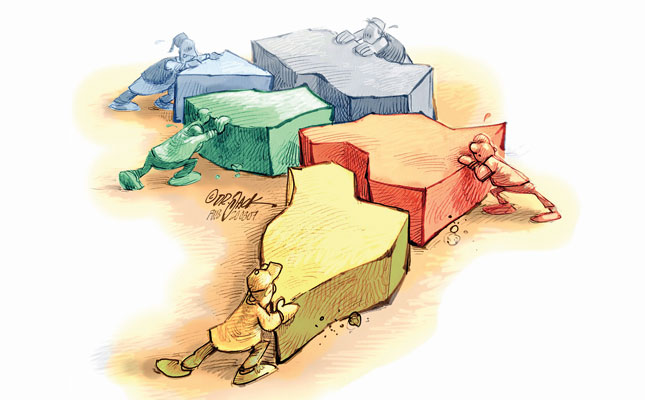In Mozambique, biofuel investors have applied to use almost 5 million hectares, nearly one-seventh of the country’s available arable land. In Congo-Brazzaville, President Sassou-Nguesso has granted 70 000ha to Italian oil company ENI to plant oil palm monoculture plantations for agrofuel production, thereby threatening Africa’s last precious tropical primary forest.In Kenya, Japan’s Biwako Bio-Laboratory plans to establish 30 000ha of Jatropha curcas trees for agrofuel production, while Canada’s Bedford Biofuels has obtained 360 000ha. Meanwhile, UK-listed Energem BioFuels secured about 20% of Madagascar’s arable land, over 490 000ha, for the same crop.In Sierra Leone, the Swiss-based Addax Bioenergy obtained 26 000ha for sugarcane, while in Benin up to 400 000ha of wetlands will be converted to palm oil. A 2009 UN Food and Agriculture Organisation study into Ethiopia, Ghana, Mali, Sudan and elsewhere found that 2,4 million hectares were transferred in deals with foreign entities since 2004. A separate study by the International Food Policy Research Institute estimates almost 5 million hectares in Africa – an area bigger than the Netherlands – is earmarked for agrofuel.
Clearly, Africa is being targeted as a source of agricultural land and natural resources for the rest of the world. Land grabs – where land traditionally used by local communities is leased or sold to outside investors – are becoming increasingly common. Some argue these food and fuel crop initiatives will create jobs and alleviate poverty. But Friends of the Earth believes these arguments are disingenuous. They leave many questions unanswered. Is the push for agrofuel production in developing countries’ interest, or are the real beneficiaries industrialised countries? Will agrofuels production really provide more jobs and enhance economic development at community level? How will this affect food insecurity plaguing the developing world? What are the social and environmental costs to host communities? There’s growing evidence farmland is being acquired without the consent of local communities, and often without a full assessment of the environmental impact.
Africans pay the price
Friends of the Earth has looked at cases of land grabbing in 11 countries across Africa, from Ethiopia to Mozambique. While some land is sold outright – to private companies, state companies or investment funds – most is leased and sometimes farmers are contracted to grow specific crops.Many of the host countries have encouraged this. In July 2006, 15 African countries, including Benin, Ghana, Senegal and Mali, signed a treaty establishing the Pan African Non-Petroleum Producers Association (PANPP), known as “the green OPEC” to promote biofuel production.Awareness of the downsides of the agrofuel boom is increasing. As scientists challenge the climate benefits of this alternative fuel source, local communities and, in some cases, governments, are waking up to the impact of land grabs on the environment and local livelihoods.
The promise of jobs isn’t always fulfilled. Most agrofuel crops require little labour. There may be work clearing the land for the plantation and at harvest time, but there are few long-term jobs for local communities.Where jobs are created, levels of pay are often too low to improve the standard of living. In Mozambique, Energem has been given the rights to 60 000ha of previous communal farming and grazing land for jatropha. It’s 250 employees are paid the minimum wage, but many earn less than they could during a good farming year.Meanwhile, forests are destroyed to make way for plantations, obliterating valuable natural resources and increasing greenhouse gas emissions. Farmers find that jatropha, rather than guaranteeing an income, uses valuable water and needs expensive pesticides. In some cases, other crops are cleared to plant it, so farmers have no income and no food.
In Tanzania, Madagascar and Ghana there have been protests following foreign land grabs, but elsewhere the enthusiasm for agrofuels continues unchecked. But while foreign companies pay lip service to the need for “sustainable development”, agrofuel production and demand for land is destroying pasture and natural habitat.While politicians promise that agrofuels will bring locally sourced energy to their countries, most of the foreign companies are developing them for the international market. In turn, African countries will be left with depleted soils, drained rivers and destroyed forests. More than that, they’ll face widespread hunger.Source: Africa: Up for Grabs – the scale and impact of land grabbing for agrofuels, by Friends of the Earth. |fw













